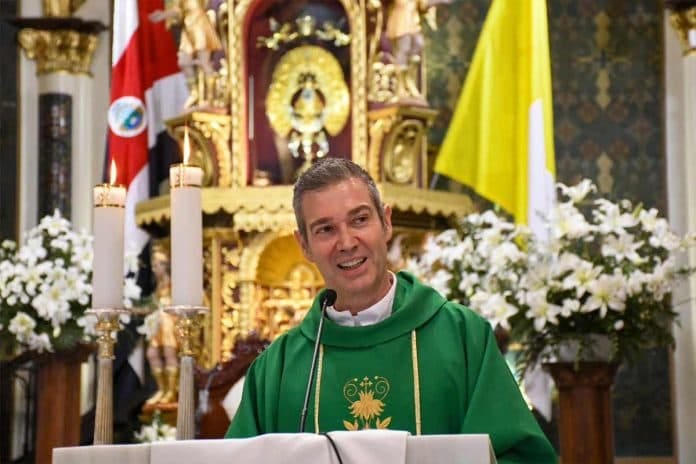Pope expels a bishop and 9 other people from a Peru movement over ‘sadistic’ abuses
Nicole Winfield of The Associated Press reports from Vatican City.

VATICAN CITY (AP) — Pope Francis took the unusual decision Wednesday to expel 10 people — a bishop, priests and laypeople — from a troubled Catholic movement in Peru after a Vatican investigation uncovered “sadistic” abuses of power, authority and spirituality.
The move against the leadership of the Sodalitium Christianae Vitae, or Sodalitium of Christian Life, followed Francis’ decision last month to expel the group’s founder, Luis Figari, after he was found to have sodomized his recruits.
It was announced by the Peruvian Bishops Conference, which posted a statement from the Vatican embassy on its website that attributed the expulsions to a “special” decision taken by Francis.
The statement was astonishing because it listed abuses uncovered by the Vatican investigation that have rarely if ever been punished canonically — such as hacking someone’s communications — and cited the people the pope held responsible.
According to the statement, the Vatican investigators uncovered physical abuses “including with sadism and violence,” sect-like abuses of conscience, spiritual abuse, abuses of authority, economic abuses in administering church money and the “abuse in the exercise of the apostolate of journalism.”
An outside investigation ordered by Sodalitium later determined that Figari was “narcissistic, paranoid, demeaning, vulgar, vindictive, manipulative, racist, sexist, elitist and obsessed with sexual issues and the sexual orientation” of Sodalitium’s members.
The investigation, published in 2017, found that Figari sodomized his recruits and forced them to fondle him and one another. He liked to watch them “experience pain, discomfort and fear,” and humiliated them in front of others to enhance his control over them, the report found.
Still, the Holy See declined to expel Figari from the movement in 2017 and merely ordered him to live apart from the Sodalitium community in Rome and cease all contact with it. The Vatican was seemingly tied in knots by canon law that did not foresee such punishments for founders of religious communities who weren’t priests. Victims were outraged.
But according to the findings of the latest Vatican investigation, the abuses went beyond Figari. They included Sodalitium clergy and also involved harassing and hacking the communications of their victims, all while covering up crimes committed as part of their official duties, according to the statement.
The investigation was carried out by the Vatican’s top sex crimes investigators, Maltese Archbishop Charles Scicluna and Monsignor Jordi Bertomeu, from the Dicastery for the Doctrine of the Faith, who travelled to Lima last year to take testimony from victims.
Read the full Associated Press story.

